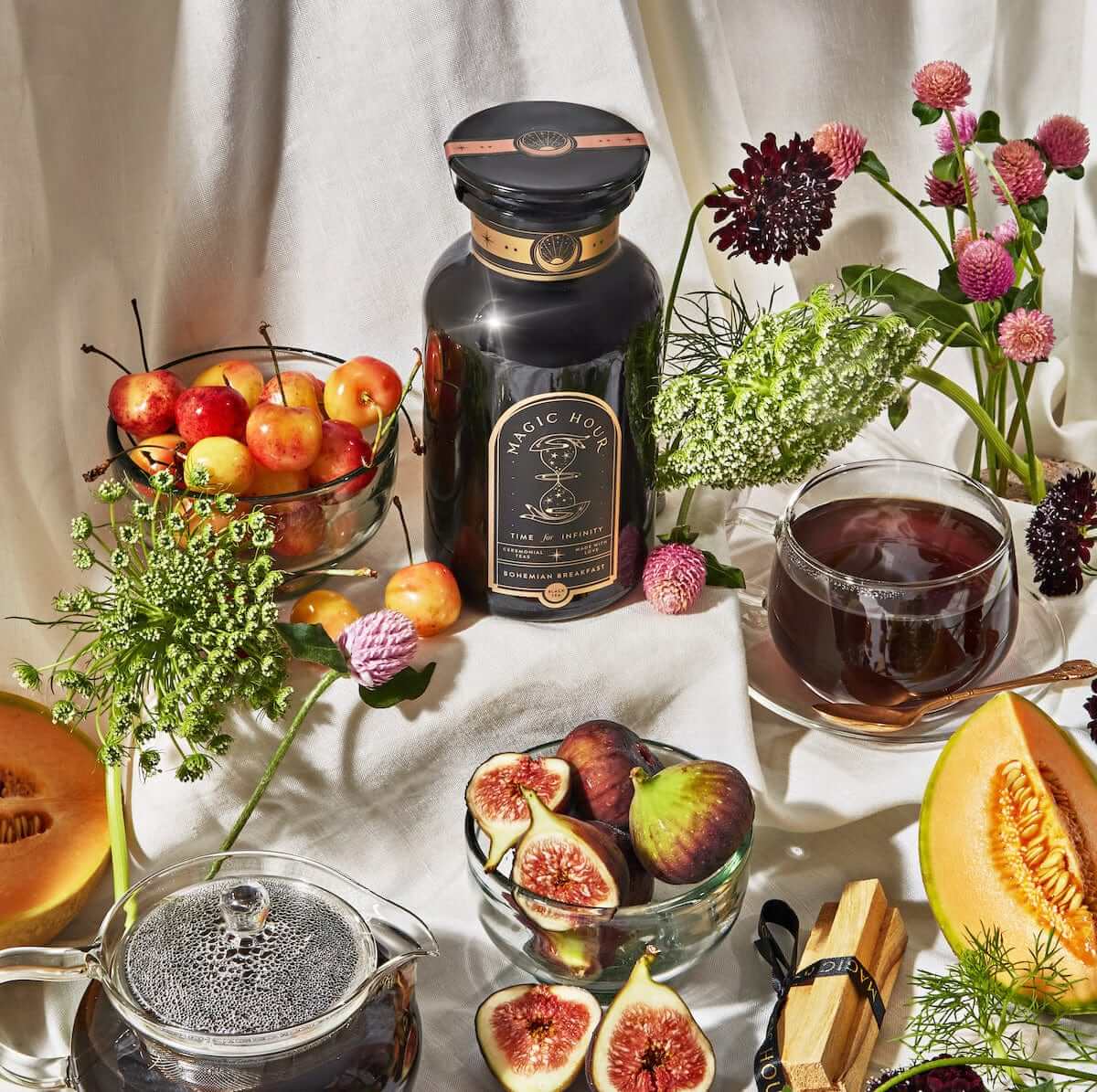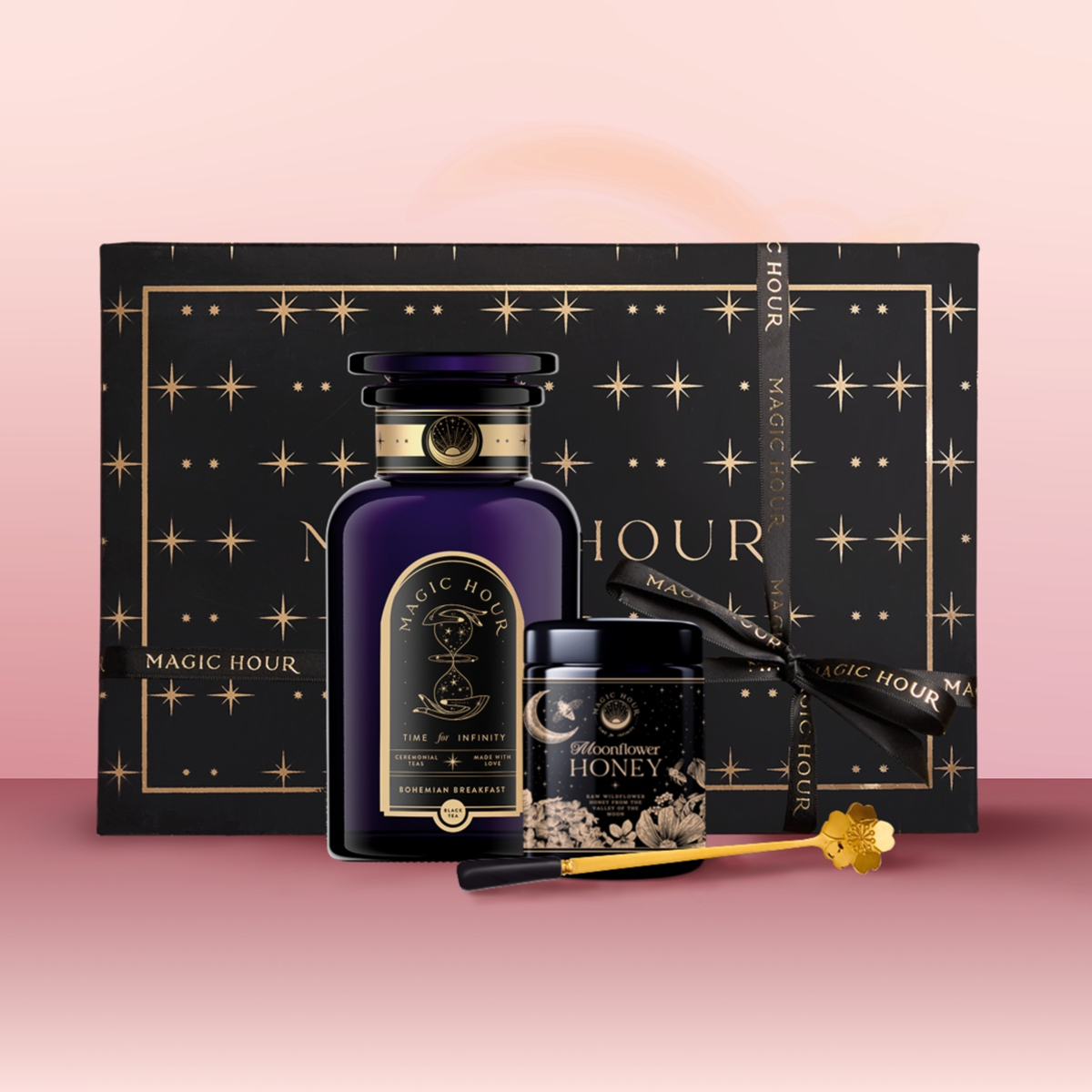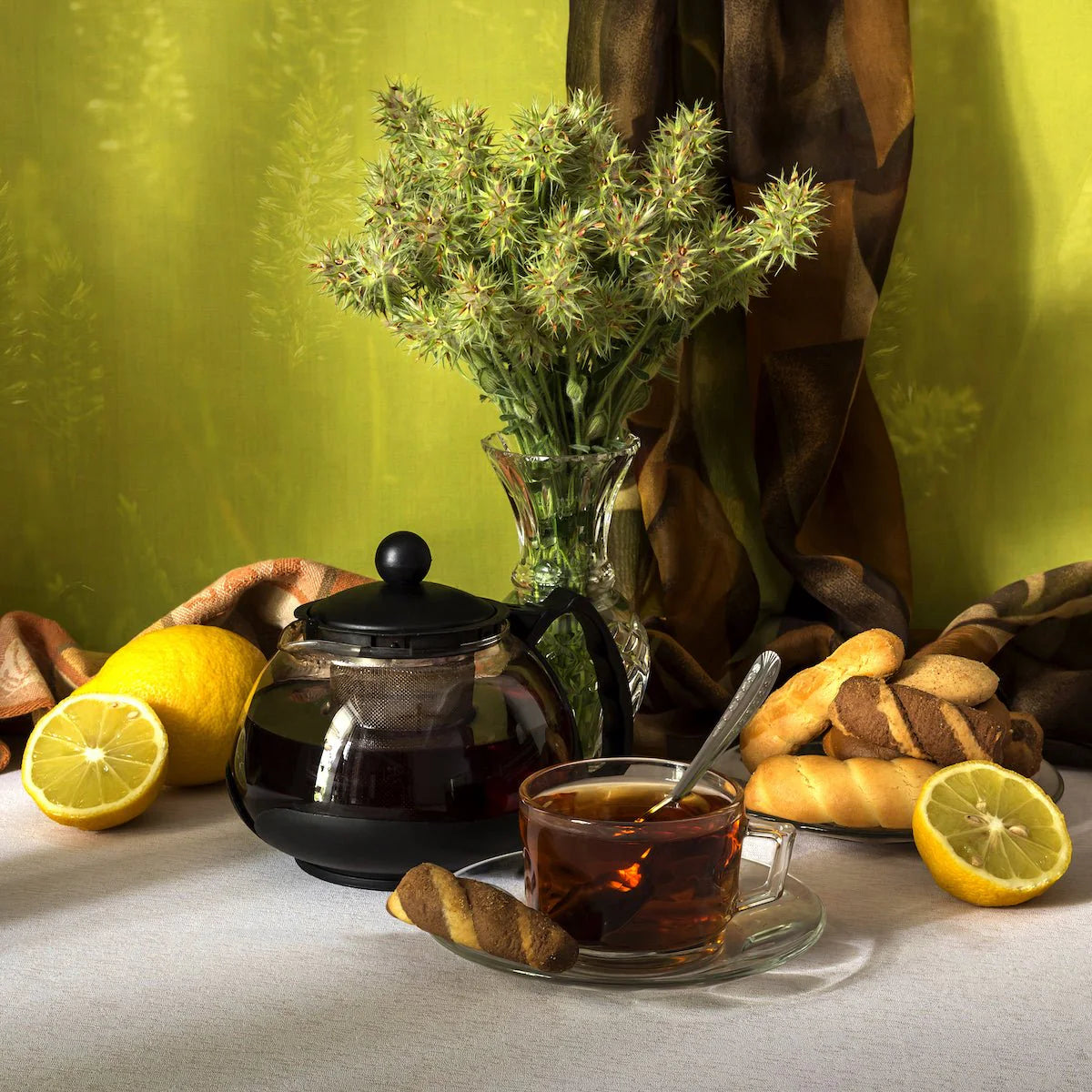Teas for cough can be a great remedy for chronic coughing, which can be both uncomfortable and disruptive. Some coughs arise from temporary irritants like smoke, chemicals, and tobacco, often leading to a “dry” cough that doesn’t produce mucus. Infections, like the common cold or allergies, cause a “chesty” or productive cough that helps clear your airways of phlegm.
Chesty coughs are sometimes linked to underlying health issues such as asthma, pneumonia, or post-nasal drip. Whatever the cause, tea can offer soothing relief.
In this article, we will discuss which teas are best for relieving dry and productive coughs.
Please Note: This guide is not medical advice. Do not use it as a substitute for seeking medical care for illness. Always seek the counsel of a licensed medical professional for your health concerns.
How Does Drinking Tea Help with a Cough?
Drinking tea has many benefits for coughing. Here are some of the most common.
Hydration: Dry throat contributes to keeping your respiratory tract irritated. Warm tea soothes and hydrates, calming your cough reflexes.
Anti-inflammatory soothing: All green and black teas have anti-inflammatory properties, and many herbal teas share them as well. These properties reduce inflammation and provide relief.
Antimicrobial effects: Antimicrobial effects from drinking teas like ginger and thyme help fight off infection, aiding in cough recovery.
Congestion relief: Teas like peppermint contain menthol. This is a natural decongestant that helps open up air pathways and promotes relaxation.
7 Best Teas for Cough
If you are suffering from a cough, these teas are the best place to start for relief.
Peppermint Tea
Peppermint tea benefits are excellent for relaxing muscles throughout your body. It is also a natural decongestant due to the menthol in the leaves. Menthol thins mucus and opens up nasal passages.

In addition to making peppermint tea to drink, you can also inhale the steam of fresh peppermint leaves or use them as a hot compress for congestion relief.
Ginger Tea
Fresh ginger has powerful anti-inflammatory properties. Its warm liquid soothes the throat and helps calm upset tummies. Like many other teas, it’s also rich in antioxidants, giving it healing capabilities.
For persistent coughs, boil 2 cups of water and add 1 tablespoon of grated ginger. Simmer for 5-10 minutes. Strain and add a spoonful of raw honey.
Chamomile Tea

Chamomile has the same healing agents as the other types of herbal teas on this list (anti-inflammatory and antimicrobials) and it is often used for its calming effects. Chamomile acts as an antispasmodic, relaxing bronchial muscles and promoting sleep.
Marshmallow Root
Marshmallow root contains a gel-like substance called mucilage. According to a 2020 study published in the National Library of Medicine, mucilage extracted and applied creates a protective film on the inflamed mucosa. Because of this soothing, protective layer, irritation in the mucous system lessens, and healing expedites.
Lemon Tea
Lemon packs immune-boosting Vitamin C in every slice. It breaks down mucus, opening up airways.

Mixing a bit of lemon with ginger will allow you to double up on anti-inflammatory properties and give you a more robust taste. Add a spoonful of raw honey for an even better flavor.
Green Tea
Green tea is very high in antioxidants. A study in the Journal of Nutrition found that green tea contained many more antioxidants than black tea. Matcha is a form of green tea with the highest antioxidant benefit.
Antioxidants help reduce inflammation in the throat and boost the immune system, making it a great tea for coughs.

The Magic Hour Shop has a plethora of healing Green Teas to choose from for relief. Try the Ceremonial Matcha or Sencha Kyoto (pictured above).
Thyme Tea
Thyme contains thymol and carvacrol that help fight off bacterial and viral infections. It is also rich in antioxidants, boosts the immune system, and helps relax the muscles of the trachea and bronchi. This eases coughing and makes breathing more comfortable.
How to Prepare Tea to Help With a Cough
When preparing tea for a cough, focus on making a blend that will treat the root cause of your cough.
Temporary irritants are different from infections, which are different from chronic issues such as asthma.
Keep your root cause in mind while choosing your blend.
Also note that you steep tea blends of leaves and flowers, while you simmer and drain roots, barks, and dried berries for their properties.







